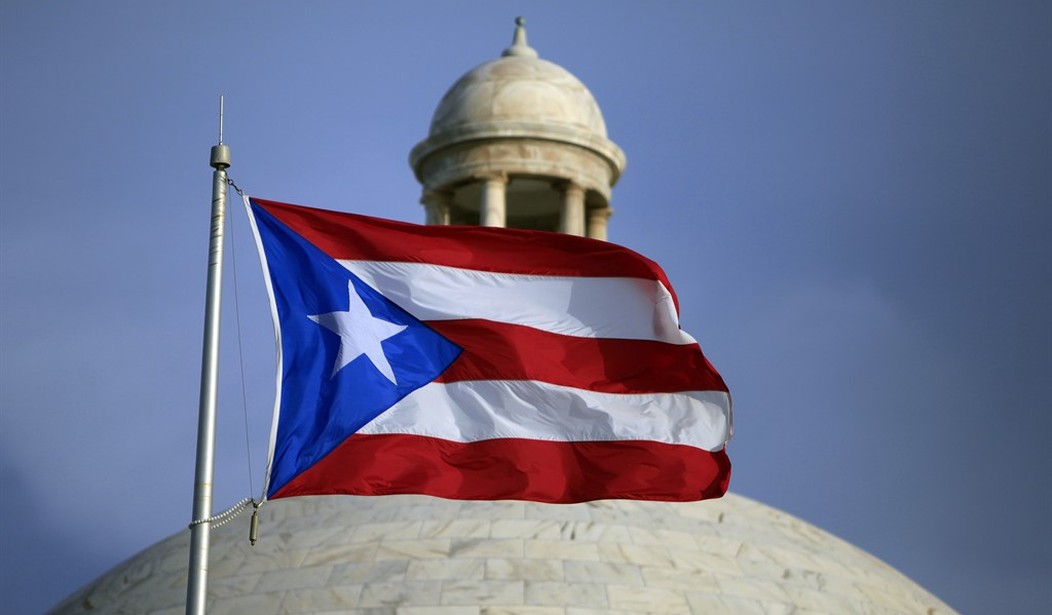It’s not Tuesday, but there’s still an election going on today. Or at least a vote, anyway. Puerto Ricans are heading to the polls yet again to weigh in on the same referendum which crops up on the island on a regular basis. Will they stay or will they go? Voters are looking at a few different options, the most high profile of which is being pushed by the current governor and would deliver a non-binding message to Washington that the territory is ready to become the country’s 51st state. But the vote comes at a rather troubling time. (NBC News)
Gov. Ricardo Rosselló from the New Progressive Party (PNP in Spanish) and his government have been pushing for a “yes” for statehood on the non-binding referendum and have been spending on GOTV efforts and television and radio ads.
But the endeavor faces an uphill battle. The U.S. territory has been shuttering schools and cutting pensions, while watching its residents flee to the U.S. mainland in search of work and its government forced to adhere to an oversight board’s dictates.
The government is wrestling with a formidable $73 billion debt and is currently in the courts under a U.S. federal district judge trying to negotiate a form of bankruptcy process (Title III). As a U.S. territory and not a state, the island cannot file for bankruptcy like other states and municipalities.
As the interviews being conducted across the island this week revealed, there are plenty of residents who don’t think much of the referendum at this point, complaining that politicians are dumping large amounts of money into the campaign when it could be spent to try to help resolve the territory’s massive fiscal crisis. Puerto Rico is currently in court trying to cut some sort of a deal which is as close to bankruptcy as it can legally come. (Not being a state, they can’t do a full bankruptcy, but still may be able to gain some measure of relief.)
There are still plenty of Puerto Ricans, however, who see themselves as sort of “second class citizens” in the United States and they’re tired of it. They can’t vote for the President (though they can vote in the primaries), and their representation in Congress is more symbolic than anything else. They are also apparently upset that they don’t get the same share of federal funding for many entitlement programs as the states when measure proportionally as based on their population.
While all the focus is on statehood in the media, Reuters reminds us that there are actually two other options on the table.
Puerto Rico’s recently elected governor Ricardo Rossello campaigned last year on holding a referendum.
Rossello’s New Progressive Party (PNP) party, which controls Puerto Rico’s government, is premised on a pro-statehood stance, while the opposition Popular Democratic Party (PPD) supports versions of the current territory status and a third party, the Puerto Rican Independence Party (PIP), supports independence.
There are still residents who want Puerto Rican independence, making them a new, free country in the region. Thankfully, most of them don’t seem inclined to follow the path of FALN and attempt to do so violently. And why would they need to? If they can convince a majority of their fellow natives to see it that way they can vote to leave whenever they like. I doubt we’d try terribly hard to stop them.
That’ brings us to the “non-binding” portion of the deal. Even if Puerto Rico narrowly votes for statehood (and the polls indicate that it will be a narrow victory if it passes at all) do you think Congress is going to move on this? Would the President be inclined to go along? It seems like pretty much all the benefits of such a transition would accrue to Puerto Rico rather than the fifty states. It’s more than a little likely that the immediate result of Puerto Rican statehood would be seeing them file for bankruptcy at once and everyone else would be left holding the bag to bail them out.
Puerto Rico is a territory and as far as I’m concerned, the era of the United States needing territories is well in the rear view mirror. We’re not an empire. We don’t need to hold foreign lands when we can (and should) make treaties and cut deals with independent foreign powers. If Puerto Ricans are tired of enjoying most of the benefits of being American citizens while not having to pay any federal taxes in return, perhaps they should rethink this and become their own country. Let’s see how that works out for them.








Join the conversation as a VIP Member